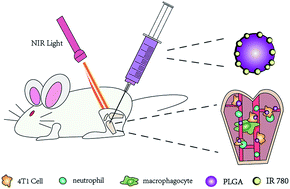Among different types of malignant diseases, breast cancer is the most prevalent one among women throughout the world. Breast cancer patients often face bone metastasis at middle and late stages of malignancies, causing various skeletal diseases (e.g. bone loss, extreme pain, hypercalcaemia, pathological fracture etc) as well as mortality. The conventional therapies for breast cancer metastasis to bone include surgery and chemotherapy, which involve several limitations. For instance, surgery is not suitable for eliminating poorly defined and small metastases. Then again, chemotherapy is associated with adverse toxicity, side effects, drug resistance, tumour recurrence, tumour targeting issue etc. Therefore, it is urgently required to develop some alternative approaches for the treatment of breast cancer and associated bone metastasis by solving the aforementioned limitations. In this context, nanomedicine might play a pivotal role, considering its potent biomedical applications in drug delivery, radiotherapy, gene therapy and photothermal therapy (PTT) to treat different types of cancers. Of late, near-infrared (NIR) laser light-based PTT involving biocompatible nanomaterials has been immense popular, due to the minimized invasiveness approach with enhanced safeguarding of adjacent tissues and potent anti-cancer efficiency, by producing high temperature in tumour tissues locally upon absorbance of light, ultimately leading to cancer cell death in a targeted manner. Even though, PTT has been widely studied for the treatment of superficial tumours, there is scarcity of reports related to its application for the therapy of deep tumors including bone metastasis of breast cancer.
In this scenario, Wang and co-workers have recently developed an NIR-triggered nanoplatform based on IR780 (NIR absorber)-encapsulated biocompatible poly-lactide-co-glycolide (PLGA) nanoparticles (IR780@PLGA NPs) and investigated its PTT potential for the treatment of bone metastasis of breast cancer. The researchers established a bone metastasis model of tumours in BALB/c mice by inoculating 4T1 cells (mice breast cancer cells) into right tibia of mice through intraosseous infusion. The intra-tumoural administration of IR780@PLGA NPs to the tumor containing mice in presence of NIR light exhibited better tumor growth inhibition than the PBS control group and IR780@PLGA NPs group without NIR radiation, suggesting that the nanoplatform could effectively suppress the breast cancer cell metastasis to bone through PTT. Additionally, histopathology study revealed that tumor containing legs administered with IR780@PLGA NPs and NIR light illustrated less damage of bone and more number of healthy tissues around it as compared to the control groups. Overall, the study provides the basis for potent clinical application of IR780@PLGA NPs-based PTT for the treatment of bone metastasis of breast cancer in near future.
Reference
Near-infrared-induced IR780-loaded PLGA nanoparticles for photothermal therapy to treat breast cancer metastasis in bones, Li et al., RSC Adv., 2019, 9, 35976-35983
About the Web Writer:
 Dr. Ayan Kumar Barui received his Ph.D. degree from CSIR-Indian Institute of Chemical Technology (CSIR-IICT), India in 2017. Then he worked as a postdoctoral research associate in Ulsan National Institute of Science and Technology (UNIST), South Korea for more than two years. Currently, he is associated with an R&D institute based in India. His research focuses on the development of nano/bio-materials for pro- and anti-angiogenic therapy, targeted drug delivery, cancer therapy, vascular disease therapy, wound healing, and bio-imaging. He possesses 37 peer-reviewed international publications and several international conference awards. He is recognized as a member (MRSC) of the prestigious Royal Society of Chemistry (RSC), UK. He also serves as an invited reviewer for various international journals including Nanoscale, Biomaterials Science, Journal of Materials Chemistry B, Materials Science and Engineering C, RSC Advances, Food & Function etc.
Dr. Ayan Kumar Barui received his Ph.D. degree from CSIR-Indian Institute of Chemical Technology (CSIR-IICT), India in 2017. Then he worked as a postdoctoral research associate in Ulsan National Institute of Science and Technology (UNIST), South Korea for more than two years. Currently, he is associated with an R&D institute based in India. His research focuses on the development of nano/bio-materials for pro- and anti-angiogenic therapy, targeted drug delivery, cancer therapy, vascular disease therapy, wound healing, and bio-imaging. He possesses 37 peer-reviewed international publications and several international conference awards. He is recognized as a member (MRSC) of the prestigious Royal Society of Chemistry (RSC), UK. He also serves as an invited reviewer for various international journals including Nanoscale, Biomaterials Science, Journal of Materials Chemistry B, Materials Science and Engineering C, RSC Advances, Food & Function etc.
You can find him on Twitter @AYANBARUI
 Submit to RSC Advances today! Check out our author guidelines for information on our article types or find out more about the advantages of publishing in a Royal Society of Chemistry journal.
Submit to RSC Advances today! Check out our author guidelines for information on our article types or find out more about the advantages of publishing in a Royal Society of Chemistry journal.
Keep up to date with our latest HOT articles, Reviews, Collections & more by following us on Twitter. You can also keep informed by signing up to our E-Alerts.











